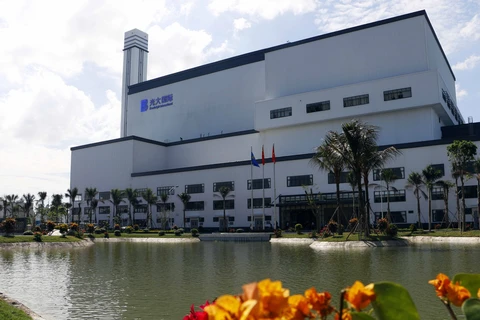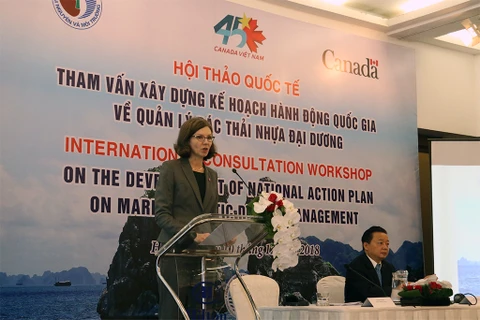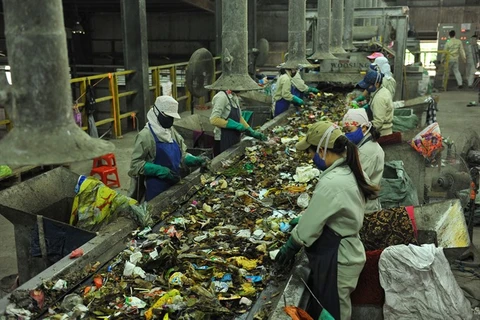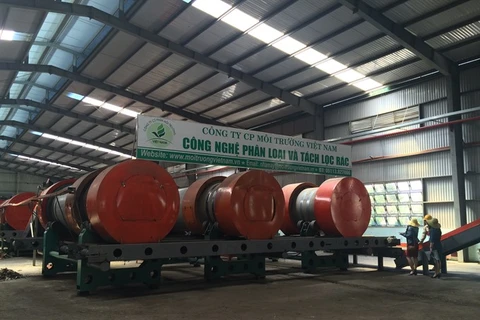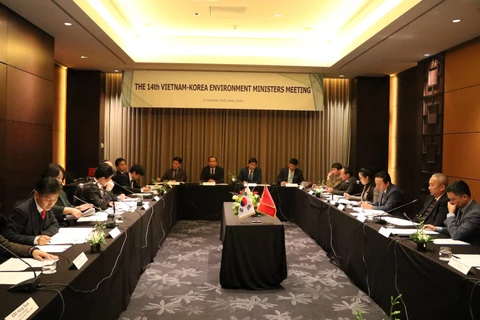Hanoi (VNA) – The application of new waste treatment technologies is now a national urgent requirement amidst the mounting waste volume and shortcomings of current disposal methods, heard a seminar held in Hanoi on December 21.
Deputy Minister of Natural Resources and Environment Vo Tuan Nhan said that the fast growth of the economy and population have resulted in a steep increase in solid waste.
According to reports from provinces and cities nationwide, urban areas generate about 38,000 tonnes of solid waste per day, while rural areas produce another 32,000 tonnes, with only 85 percent and 40-55 percent of waste collected, respectively.
In many remote areas, the collection and treatment of solid waste is very difficult. Most waste is directly dumped into the environment or in makeshift landfills that do not meet environmental protection standards.
The transport of solid waste is also facing obstacles as landfills are located far away from residential areas, and the current environmental fees collected from households are not enough to cover waste collection and transport.
While qualified landfills have just been built in some provinces with larger budgets, treatment facilities in rural areas and low-income localities have yet to meet environmental standards.
Notably, residents in many places have objected to the construction of waste treatment plants as they fear negative impacts like water and air pollution, participants at the seminar said.
The Ministry of Science and Technology said that there is an urgent need for new technologies that reduce the burden of waste burial to help save land resources.
The three main waste treatment methods in Vietnam are burial, microbiological fertiliser production, and burning. Only 30 percent of existing landfills meet green standards, while most of the nearly 300 incinerators nationwide are small-scale. There are only about 30 facilities producing organic fertilisers from waste at present.
In some areas, residents have been instructed to dispose waste by using biogas digesters, but this activity is still limited. Meanwhile, imported technologies do not suit Vietnam’s situation due to different lifestyle and climate conditions, according to the workshop.
Experts said the country should perfect existing technologies, especially those converting waste into energy, to limit the creation of new landfills.–VNA
VNA

